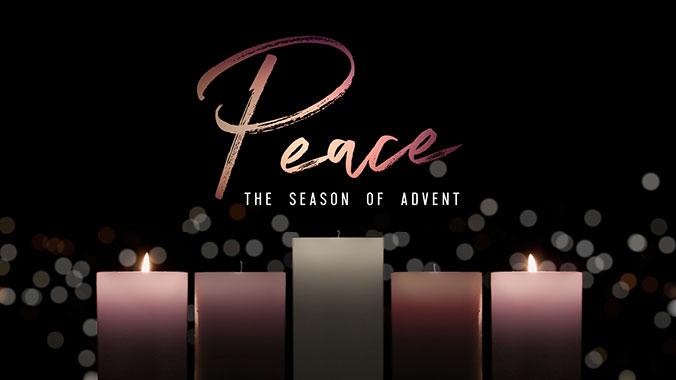For to us a child is born… and he will be called… prince of peace. ~ Isaiah 9:6
Let the peace of Christ rule in your hearts to which indeed you were called in the one body. ~ Colossians 3:15
Years ago, at the Saint Paul School of Theology in Kansas City, Missouri, I took a class on the art of preaching. For our final project, the professor asked us to prepare and deliver a sermon on something we might not normally talk about. “Stretch yourself a little and preach the Gospel. Take a chance.”
I gave a sermon on the nonviolent peace of Jesus and how he opposed violence, including war. In short, I said Jesus asks us to “turn the other cheek,” “walk the extra mile,” “forgive one another,” and even to “love our enemies.” Jesus did not say, “Pick up your guns and follow me. He said, ‘Pick up your cross and follow me.’” “There is no such thing as a just war in the eyes of Jesus. If we want to live like Christ, we are called to be nonviolent peacemakers.”
After the sermon, the class of United Methodist ministers critiqued my sermon. One lady said, “If you gave that sermon in my church, they would ask you to leave and not politely.” Another man said, “My church would call you a communist and then ask you to leave.” Another minister said, “I think you would hurt a lot of people’s feelings talking about peace and nonviolence. We’re very patriotic. We wouldn’t want to think we ever did anything wrong.” “Our church doesn’t like war, but we do believe in just wars.” “Are you saying we should get rid of our guns? Not in our town. We are free to worship our God because of our guns and our military.”
And then a dentist from Lincoln, Nebraska asked, “Does the gospel (the life of Jesus) shape us and inform us, or do we shape the gospel and Jesus into our belief system?” Do we embrace and live the “peace of God which transcends all understanding,” (Philippians 4:7)? Was Jesus a nonviolent peacemaker? What is our commitment to Christ’s peace?
Jim Forest in his autobiography on Dorothy Day writes, “Jesus healed many and killed no one.” Jesus died for us, but he did not kill anyone for us. That is a world of difference. The Peace of Christ is freely given to us, but living peace is not free or passive. Perhaps no aspect of Jesus’ life and teachings is so thoroughly ignored and dismissed as his manifestation of nonviolent peace (the third way) at all costs.
When the Roman soldiers come to arrest and kill Jesus, Peter, who wants to defend Jesus, takes his sword, and cuts off the ear of one of the soldiers. Shane Claiborne comments, “If ever there was a case for justified violence or a just war, this is it.” In his last miracle, Forest says, “Jesus heals the wound of one of the men arresting him.” Love your enemies? Jesus meant what he said.
Jesus says to Peter, his friend, “Put your sword back into its place; for all who take the sword will perish by the sword,” (Matthew 26:52). “For several centuries Christians understood that Jesus was speaking not only to Peter at the moment but to all who would seek to follow him in the centuries to come,” writes Foster.
Do we trust in the way of Jesus’ peace, or do we trust in empire? It’s a hard question, but I think we know the answer.
Jim Forest writes, “Both church and state expect ordinary men and women to take up arms when their rulers order them to go to war.” When Saint Maximila was executed for refusing to do military service, he died saying to his executioners, “Christ lives!” What does the peace of Christ require of us? Like Jesus, do we say no to violence? Revenge?
“For Jesus, there are no countries to be conquered, no ideologies to be imposed, no people to be dominated. There are only children, women, and men to be loved,” says Nouwen.
Our world is under siege from mass shootings, vigilantes taking the law into their hands, neighbors shooting neighbors, domestic and international violence, terrorists, corporate greed, war, destruction of our rivers and our land, and rampant poverty. It is overwhelming. How is the way of the sword working out for us?
But the child born in the manger, the Prince of Peace, grows up and embodies peace, creates peace, and shares peace. He does not fight or flee but embraces the third way. He forgives, restores, and heals. He chooses to suffer rather than retaliate. He receives hate and returns love. He steps out of the cycle of violence and revenge and chooses to love at all costs. Blessed are the peacemakers he told us. Put your swords away.
How can we start living Christ’s peace?
Henri Nouwen says, “Peacemaking begins with prayer. When we prayer we enter upon the peace of the God of peace, the one who disarms our hearts, who bestows on us the gift of peace. Grace transforms us and deploys us to help disarm the world.”
This Advent season may we keep our eyes on the Prince of Peace.
May we anchor our lives in peace that surpasses understanding.
May we embody peace, create peace, and share peace.
Our future together depends on peace. May we all become peacemakers. Amen.
Blessings and peace,
Craig

